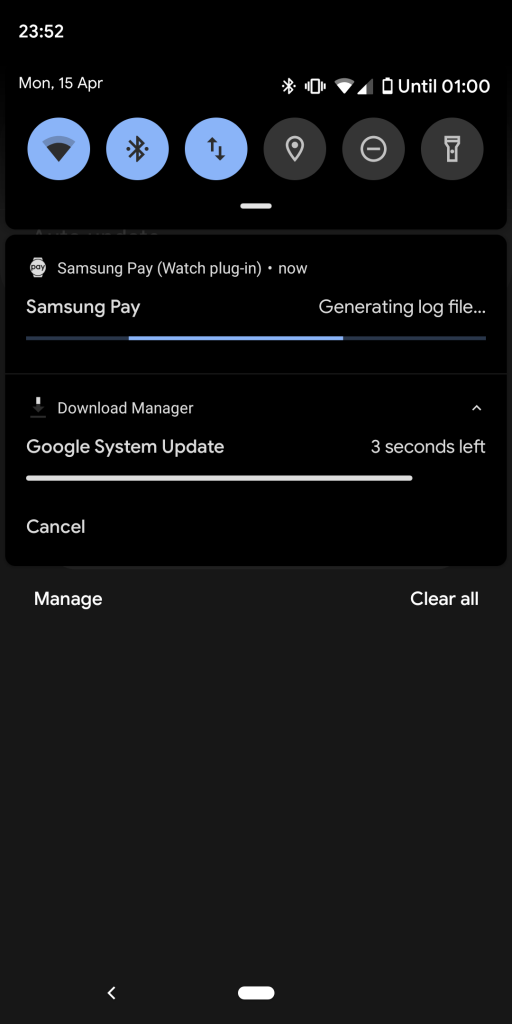Like its iOS rival, updates to the Android operating system have been carried out through the Settings application since its commercial release in 2008. It seems as though this is set to change with the introduction of Android Q later this year, as a new Play Store APK shows system updates housed within the Download Manager alongside other applications.
9to5Google made the discovery of the APK last week, noting that the “System Update” function had shifted over to the Play Store in the Android Q beta but displayed a similar agreement process when it was located within the Settings. At the time, it was just speculation as to whether the term referred to System Updates as they are now, relating to the operating system, but a Pixel 3 user has seemingly confirmed the case on Reddit.
Although rohanbathla007 couldn’t confirm a change in the build number of their Android Q beta, the user described the process as a full-fledged update to the operating system done within the Play Store. This was complete with a “G symbol with a progress bar below it,” almost identical to the current layout of the System Update screen.
The best part of this account is that the user explains that the process was “definitely faster than previous updates,” with the device taking “less than a minute to boot up again” after the automatic restart. Of course, this could have simply been the size of the update, as more comprehensive overhauls to the build would perhaps warrant Beta 3 over the current Beta 2.
There’s a chance that this change might not be exclusive to Android Q, but instead a wider rework to how Google wishes to disseminate its updates in the future. While Pixel devices are undoubtedly going to be the first to receive anything new, we will have to wait until the company’s I/O event in May to see whether it will reach third-party OEMs.
KitGuru Says: If it’s faster for users and potentially easier for developers, then the change makes a lot of sense. Hopefully this will see the likes of Samsung and the likes update their flagship devices a little bit quicker in the future.
 KitGuru KitGuru.net – Tech News | Hardware News | Hardware Reviews | IOS | Mobile | Gaming | Graphics Cards
KitGuru KitGuru.net – Tech News | Hardware News | Hardware Reviews | IOS | Mobile | Gaming | Graphics Cards



